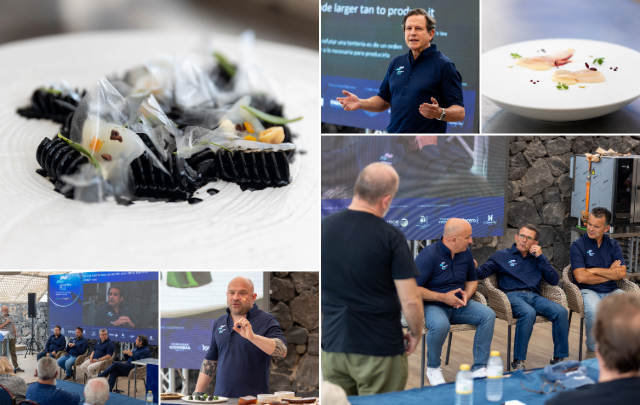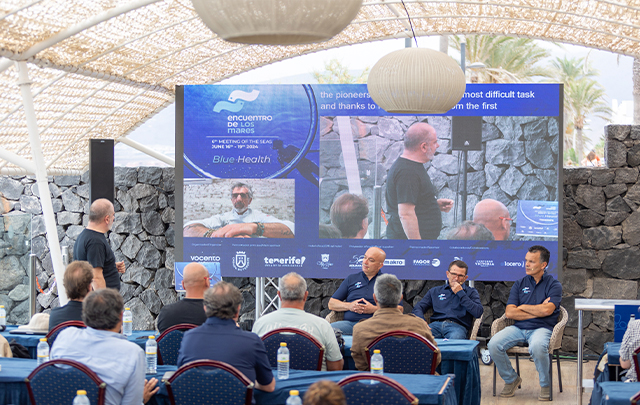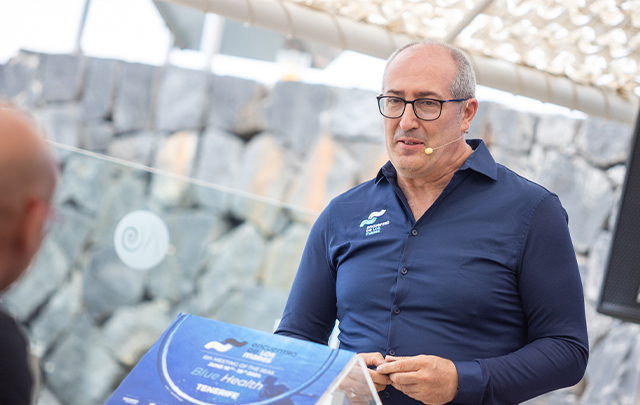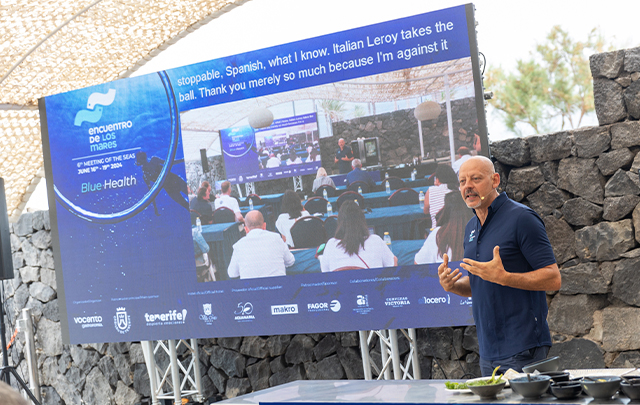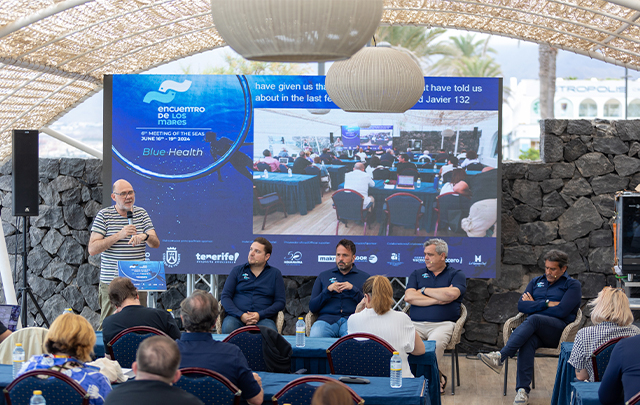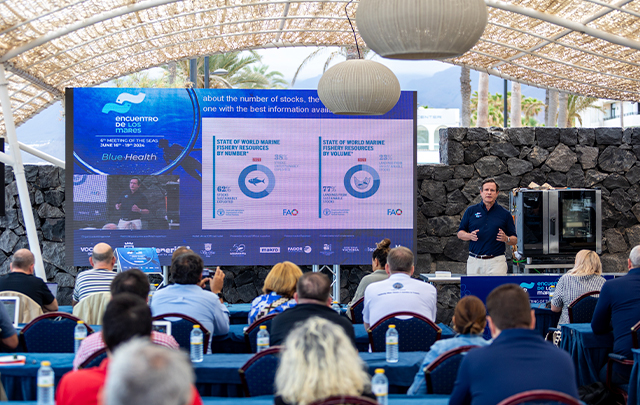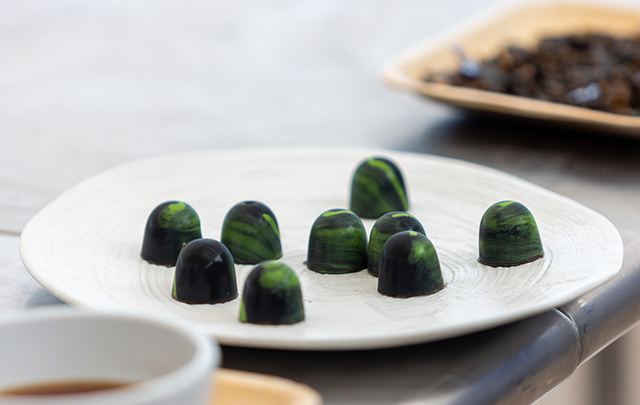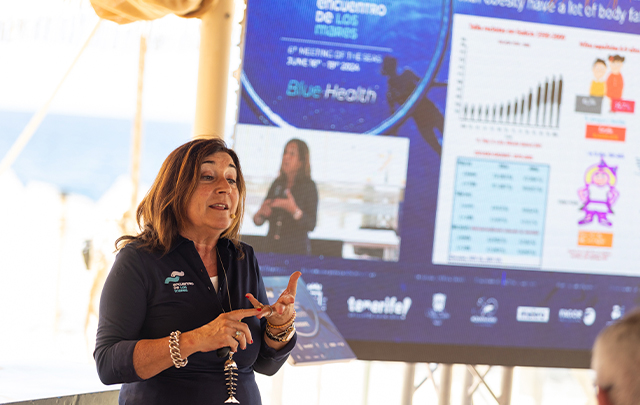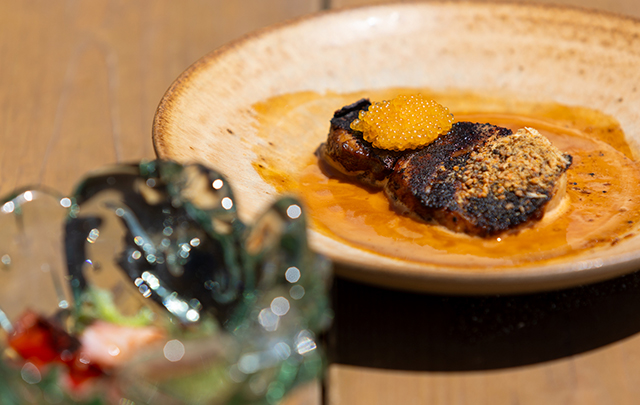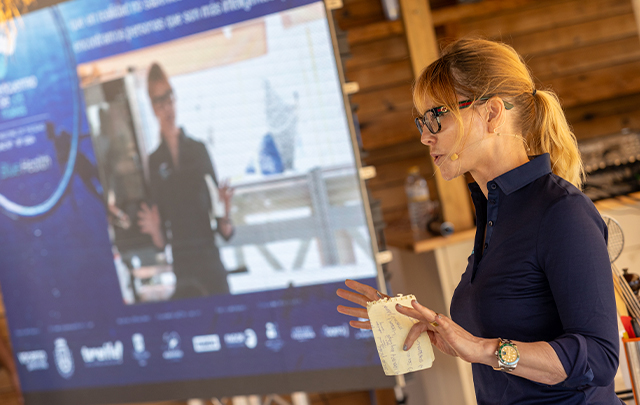News
"If our children continue to eat the way they do, they will live less than their grandparents and parents"
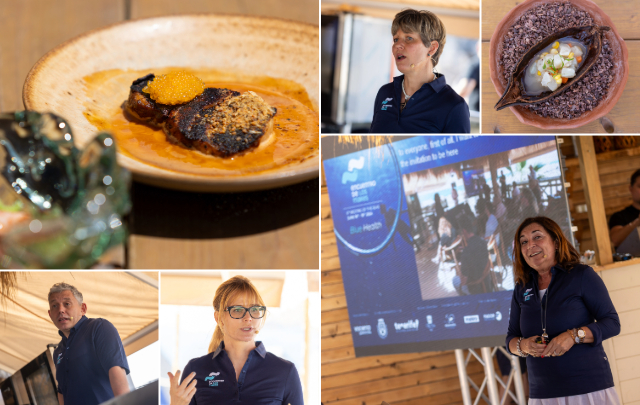
Encuentro de los Mares highlights the need to increase fish consumption, especially among young people, in order to achieve a healthier and longer life.
The second day of Encuentro de los Mares took place at the Chiringuito Casa Playa Tenerife on Las Vistas beach in Arona. Here, the cooking demonstrations coexisted with other presentations that focused on two main themes: the benefits of fish for our bodies ('Blue Health', the slogan of the Encounter, makes more sense than ever) and the importance of always keeping sustainability in mind, understood from very different perspectives.
White fish, oily fish and shellfish have a long list of components and nutrients that make their consumption very beneficial for people of all ages and, in this sense, omega-3 was perhaps one of the most repeated concepts throughout the morning. Dietitian Carrie Ruxton referred to it and believes that in supermarkets "we could put a label on it saying that buying fish helps your heart". This is backed up by several studies which show that eating fish is not only good for the heart, but also for the immune system and the brain. "We can programme babies to have a lower risk of allergies and asthma from their mothers' food," she explained.
Rosaura Leis, paediatrician and president of the scientific committee of the Atlantic Diet Foundation, also referred to the consumption of fish at an early age. She did so with concern, because studies prove her right, and in her speech she also wanted to involve many other actors, such as grandparents, parents, paediatricians, teachers and, of course, politicians.
But Leis also wanted to focus on the benefits of traditional diets and, as a good Galician, she defended the Atlantic diet, in which fish is one of the main foods. "If we want to be healthy, we must return to these traditional diets from the first moment of our lives," she reflected, while making it clear that now is the time to act. He also warned that "if our children continue to eat the way they do, they will live less than their grandparents and their parents".
Continuing with omega-3 and its benefits, Courtney Nichols Gould, co-founder of NewAtlantis Labs and SmartyPants Vitamins, showed how there is also a business opportunity around this food. A successful entrepreneur, she found herself struggling to find a multivitamin for her two-year-old son, who only wanted to eat white foods.
After a lot of research, they came up with anchovy sardines as the perfect source of omega-3s and created a product so fantastic that it was the best seller on Amazon in its first year. They soon realised that this was a need that affected adults too, but they also understood that it had to be a sustainable supply when the Peruvian fishery where these sardines came from had to close because it was on the verge of collapse due to strong demand.
Education from the kitchen
Restaurants have a key role to play in increasing fish consumption and raising public awareness of its importance. To support the presentations on health, the gastronomic side of the Encuentro de los Mares also played a leading role, and participants were able to taste the first tuna from the north, brought from Bermeo by chef Álvaro Garrido (Mina*, Bilbao). In his restaurant, which focuses on seasonality, zero-kilometre products and sustainability, 80% of the recipes come from the sea, which is better understood with his declaration of intent: "Buying fish in the market is an act of sustainability". He praised the work of Basque fishermen, stressed the importance of conscious consumption ("we don't need to sell more, we need to sell better") and, like virtually all the speakers this morning, expressed concern at the decline in fish consumption in Spain, despite the fact that it is currently by far the leading country in the European Union: "In ten years it could look like an Anglo-Saxon country". Ola Klepp, co-owner with his wife of the K2* restaurant in Norway, is also very concerned about sustainability. "We work every day to make our footprint as small as possible by respecting the seasonality of the products, creating as little waste as possible and ensuring that 78% of what we consume is organic and zero kilometres", he summarised as a working philosophy, but also with facts.
Many people took away from his presentation the three rules that Kleep uses to choose its suppliers and products. "If we buy a Norwegian product from outside Rogaland, we have to justify that it is particularly good for us, but we cannot buy it from within Rogaland. After all, everything that comes from outside Norway must be certified organic".
Also very interesting was the intervention of José Luis 'Chele' González, a chef of Cantabrian origin who has been living in the Philippines for years and runs the very successful Gallery by Chele (Manila). He brought haute cuisine to the archipelago, using local produce and European techniques. The audience travelled to Siruma thanks to a documentary, but also thanks to the four Filipino kinilaws designed in his kitchen, which the chef prepared live. "It differs from Latin ceviche in that it uses vinegar and tabon, an indigenous dried fruit that kills bacteria in the fish," he explained.

